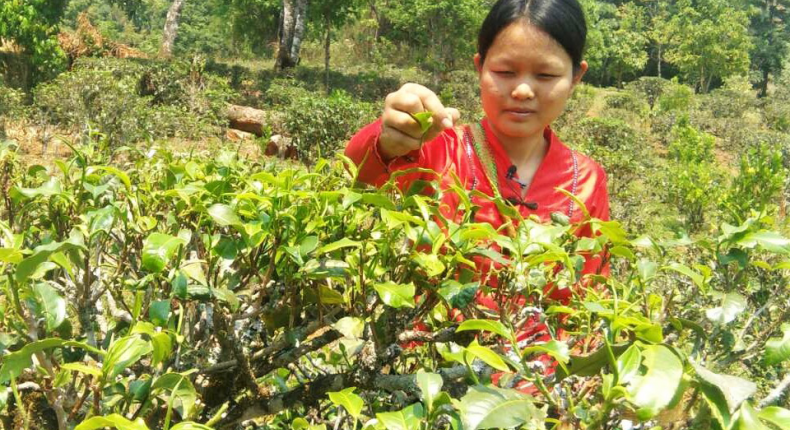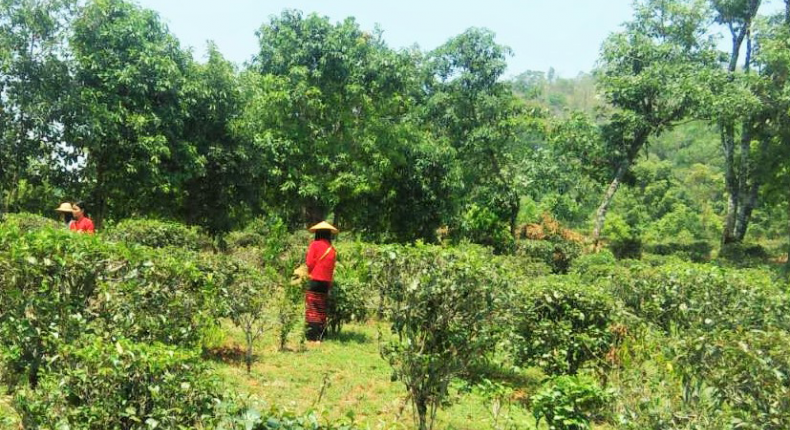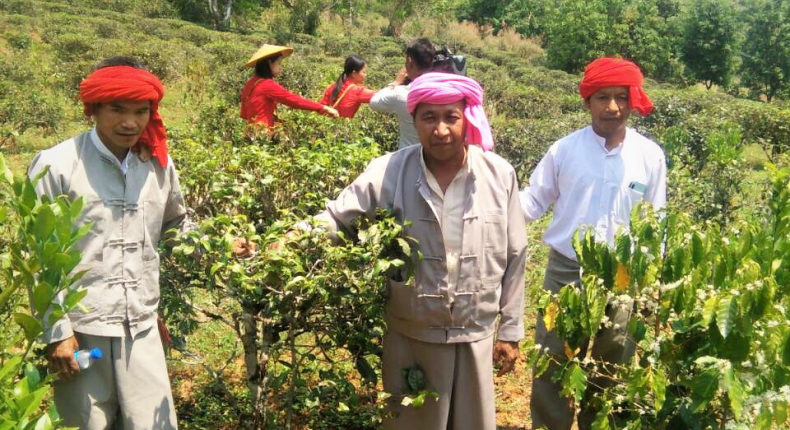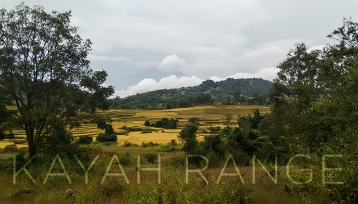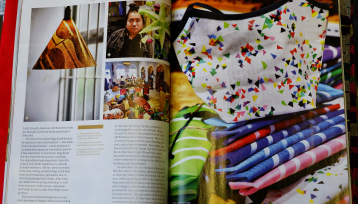Tea time is the perfect opportunity to sit back, relax, and take a moment to be fully present. In Myanmar, drinking tea has been a tradition passed down from generation to generation. In fact, Myanmar has one of the longest histories of cultivating tea in the world, and tea is still one of the major products of the country.
The best tea in Myanmar is known to be produced in the mountain ranges of Shan State, where the tea leaf plantations extend from the rugged mountain-sides to the terraced farms. There is an old proverb in the country that says: “For good tea leaves, let the Palaung (local people specialized in tea production) take their time up the hills,” referring to the high altitude in which the tea grows. Supporting local production, the tea sold at Hla Day is produced in southern Shan State, in the Ywar Ngan township.
U Maung Nu is a community leader of Ywar Ngan township and the person behind delivering the best tea to Yangon. After establishing their own tea factory in the region, U Maung Nu and his team were able to produce more tea with better quality, consequently generating a much better income for all the farmers from over 50 different villages.
Ywar Ngan township currently has two tea factories, crowdfunded by the community and partially funded by GIZ (Deutsche Gesellschaft für Internationale Zusammenarbeit). The factories have made tea production in the community much easier. In the past, the tea leaves collected by the farmers would have to be delivered to get them roasted, making the tea leaves stale by the time they get to the factory. Now that the factories can be reached within a few hours, the fresh tea leaves collected in the morning are made into tea on the same day, boosting the quality of the tea produced.
According to U Maung Nu, a good cup of tea must fulfill the requirements of good quality in terms of color, aroma, and of course, taste. But to acquire the highest quality other elements involved with the conditions at the plantations are also of vital importance, such as the soil, fertilizers and the weather. Some of these elements are unpredictable. In 2018, for example, southern Shan State received 86 inches of rain during the monsoon, affecting tea production tremendously.
Following the guidelines set by the European Union, tea produced in Ywar Ngan township qualifies as a purely organic product. “We wish such guidelines on organic products are applied in this country as well. A lot of people, including us, would appreciate that” said U Maung Nu. Currently supplying Hla Day with authentic green tea and sticky rice tea, U Maung Nu and his fellow farmers are always experimenting with new techniques.
Normally, between distribution and the market, only a tiny amount of the actual sales are received by the farmers through different mediums. U Maung Nu is proud to have their tea sold directly to Yangon by themselves. “The people of the town would proudly say ‘we’re selling our tea in Yangon, even to foreigners!’” said U Maung Nu, with a big smile on his face, “More farmers should be more aware of how worthy their tea is and learn how to work their own way through.”
Now that you know a bit more about artisanal tea production in Myanmar, it’s time to scoop, brew, pour, sip, and enjoy!

